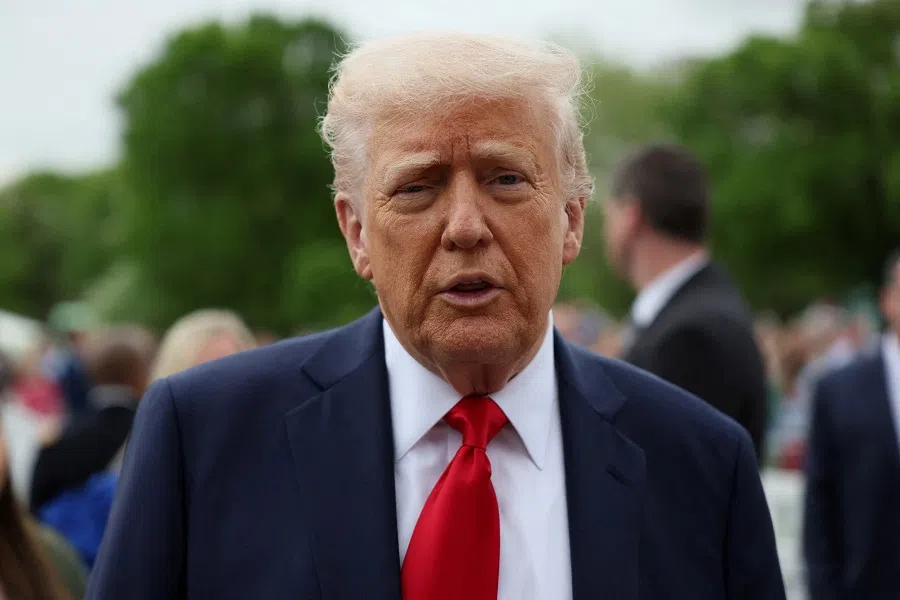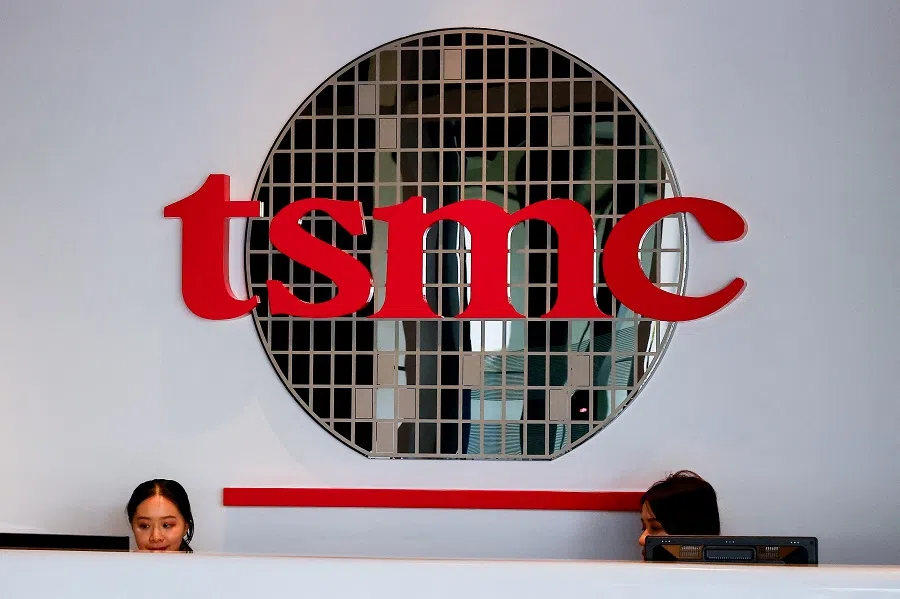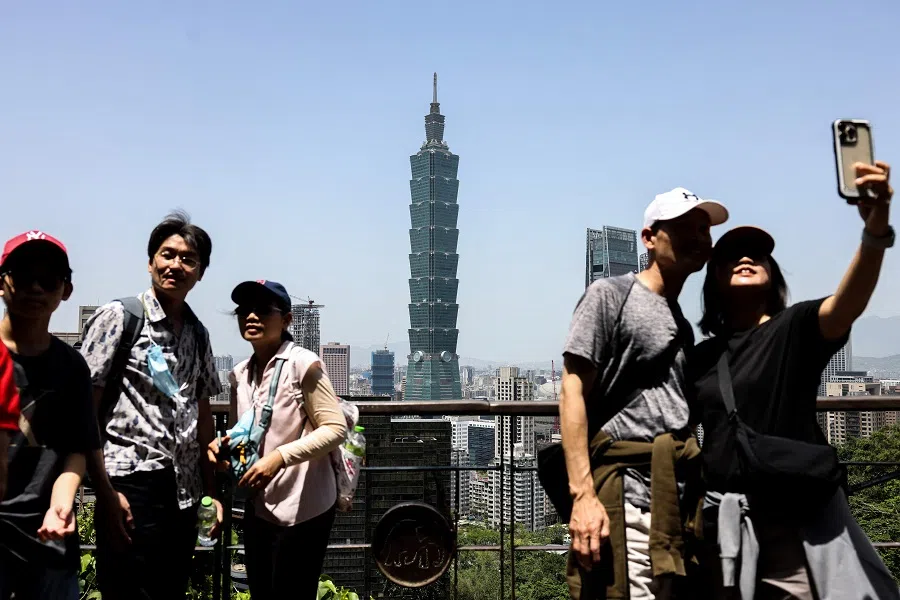Has Trump abandoned Taiwan?
US President Donald Trump’s consistent stance on Taiwan suggests that he might not be as willing as his predecessor to put in a lot of effort on building a deterrence system against China centred on the Taiwan issue — in his eyes, there is little tangible benefit for the US from doing so, say academics Li Xiaodong and Qi Dongtao.

Foreign Affairs recently published an article by American academics Jennifer Kavanagh and Stephen Wertheim titled “The Taiwan Fixation: American Strategy Shouldn’t Hinge on an Unwinnable War”. Kavanagh and Wertheim argued that the US should reassess its strategic position on the Taiwan issue and not clarify its commitment to defend Taiwan to avoid being drawn into a potentially unwinnable war.
Urging firm but limited support for Taiwan
They emphasised that the survival and prosperity of the US do not depend on Taiwan’s political status. The authors urged US politicians and analysts to speak frankly about the costs of a war with China, advocating for a “third option” between direct military intervention and abandoning Taiwan, to stop China from successfully resolving the Taiwan issue and becoming a regional hegemon that the US would be hard-pressed to restrain.
The article advised the Donald Trump administration to clearly assess the costs and benefits of a conflict with mainland China over the Taiwan issue, and to implement a policy of firm but limited support towards Taiwan.
“Firm” refers to continued interference in the Taiwan Strait affairs, such as expanding arms sales to Taiwan, particularly defensive weapons; deepening integration in politics, economy, technology and values; and keeping a close watch over shared interests in supply chains, trade and investment, as well as technology export controls.
Meanwhile, “limited” refers to how the US would not intervene directly by sending troops in the event of a Taiwan Strait conflict, but would aid Taiwan through arms sales, military technology transfers and intelligence sharing. This would help Taiwan develop its asymmetric defence capabilities in preparation for a potential proxy war. These suggestions are, in truth, a subtle way of “abandoning Taiwan”.
Since Trump took office, his strategic thinking and leadership style, distinct from Biden and previous US presidents, have given the “abandon Taiwan” narrative room to grow.

Although the various ways in which the US could abandon Taiwan had circulated among American think tanks, they never became mainstream in US politics. This was particularly evident during Joe Biden’s presidency. In an effort to unite allies against China and dispel any “US scepticism”, Biden repeatedly stated that he would deploy troops to defend Taiwan if the mainland were to attack. The Biden administration, alongside the US Congress, showed strong support for Taiwan, leaving little doubt that it would not abandon Taiwan.
Since Trump took office, his strategic thinking and leadership style, distinct from Biden and previous US presidents, have given the “abandon Taiwan” narrative room to grow.
Abandonment and no deterrence?
In pushing for a Russia-Ukraine ceasefire after taking office, Trump cosied up to Russian President Vladimir Putin, undermined Ukraine President Volodymyr Zelenskyy and later discarded Ukraine — and even the EU as well as NATO. This inevitably raised concerns that Trump might eventually abandon Taiwan.
Being staunch anti-China, pro-Taiwan hawks, both US Secretary of State Marco Rubio and Secretary of Defence Pete Hegseth openly supported Taiwan, in attempts to dispel any scepticism about the US on the Taiwan issue. However, Trump imposed tariffs as high as 32% on Taiwan in his trade war with various countries — nary a sign that he is in support of Taiwan.
The tariff war significantly impacted Taiwan, and “US scepticism” appears to be morphing into “US resentment”. While prematurely declaring that Trump is “abandoning Taiwan” geopolitically and militarily is unwise, his economic actions suggest a move in that direction, particularly his push to relocate Taiwan’s prized semiconductor industry (its “sacred mountain”) to the US.
Because Taiwan is not a core US interest, establishing credible deterrence against mainland China by leveraging the Taiwan issue is challenging.
Trump’s manner of abandoning Taiwan is harsher than the suggestions in the Foreign Affairs article. It indicates not only a willingness to abandon Taiwan, but also a lack of interest in using the Taiwan issue to establish an Indo-Pacific deterrence against China, unlike the Biden administration.

The Foreign Affairs article is still grounded in traditional deterrence theory: on one hand, it opined that Taiwan is not a core US interest and thus advised the US not go to war over it; on the other hand, it still hoped that by arming Taiwan and strengthening ties with Taiwan and Indo-Pacific allies, the US could build a deterrence system against mainland China, making an attack on Taiwan prohibitively expensive and thus dissuading such action.
Because Taiwan is not a core US interest, establishing credible deterrence against mainland China by leveraging the Taiwan issue is challenging. To enhance deterrence credibility, the Biden administration employed several tactics rooted in traditional deterrence theory, such as Biden’s repeated and explicit commitments to defend Taiwan militarily — actions considered high-cost signals in deterrence theory.
Besides actively arming Taiwan, the Biden administration also vigorously developed economic ties with Taiwan and Indo-Pacific allies to enhance their economic value to the US. This could also improve deterrence credibility, as an attack on Taiwan by mainland China would have a significant impact on US economic interests.
Moreover, the Biden administration, especially the military, has repeatedly emphasised Taiwan’s strategic geopolitical and economic importance to the US, attempting to enhance deterrence credibility by linking US core interests with Taiwan.
Back to traditional strategic ambiguity
Trump has abandoned Biden’s clear stance when it comes to military defence of Taiwan, going back to the traditional strategic ambiguity. While the US would continue to profit from arms sales to Taiwan, Trump views Taiwan and Indo-Pacific allies as economic competitors, thus diminishing their economic value to the US.
Although Trump’s actions may be brash, he seems to be more so a man of his words than traditional career politicians, which could actually increase his deterrence credibility.

Rubio and Hegseth may make statements expressing concern over the Taiwan Strait situation, attempting to inherit, even strengthen, the deterrence system against China established by the Biden administration with Indo-Pacific allies based on the Taiwan issue. However, given the series of radical moves by Trump, including discarding the EU and NATO, attempting to annexe Canada and Greenland, and waging a tariff war on both friend and foe, it remains to be seen the extent to which Indo-Pacific allies would genuinely cooperate with the US on the Taiwan issue. Essentially, these actions have weakened the US’s ability to use the Taiwan issue to deter mainland China.
The core argument of the Foreign Affairs article is that the US should not go to war with mainland China over Taiwan, a non-core interest. In fact, the Biden administration is well aware of this, but it still has to publicly maintain a posture of being willing to fight China in order to deter it.
Although Trump’s actions may be brash, he seems to be more so a man of his words than traditional career politicians, which could actually increase his deterrence credibility. However, his consistent stance on Taiwan suggests that he might not be as willing as Biden to put in a lot of effort on building a deterrence system against mainland China centred on the Taiwan issue — in his eyes, there is little tangible benefit for the US from doing so.
This article was first published in Lianhe Zaobao as “特朗普在“弃台”吗?”.






